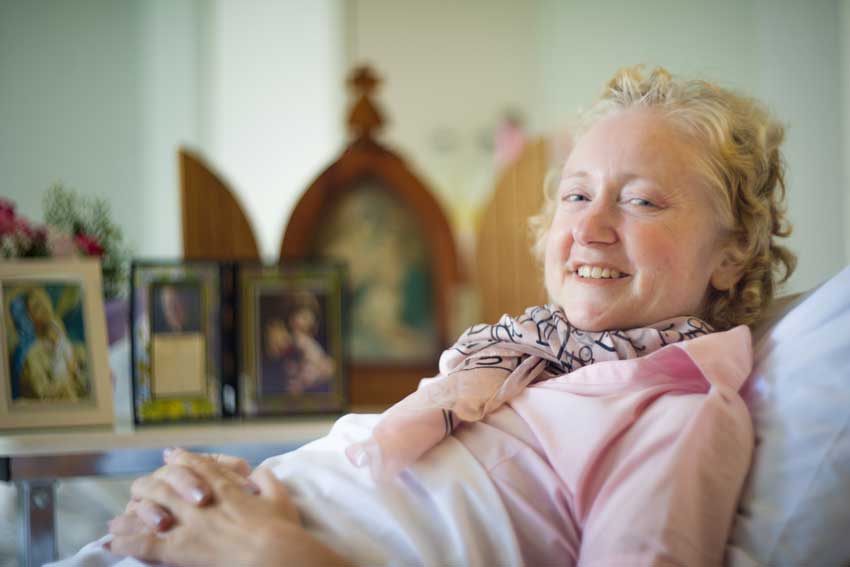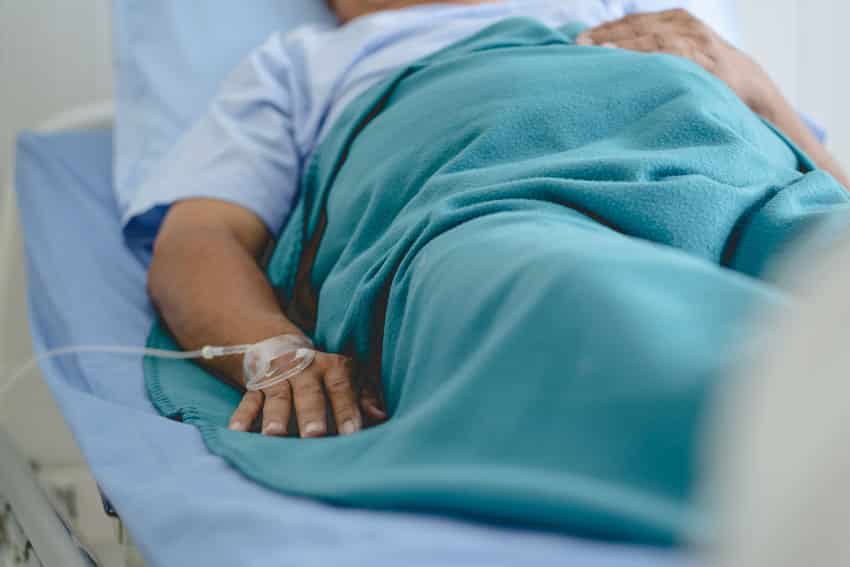
By Marilyn Rodrigues and Natasha Marsh
Victoria’s bishops declare they will not cooperate with euthanasia
Victorians who oppose euthanasia and assisted suicide are now conscientious objectors called to respond with courage and compassion to “a new and troubling chapter of health care” say the state’s bishops.
In a stirring call to action issued three days before the state’s assisted suicide law took effect, the bishops said they knew that some would find their message “hard to hear” but restated the Church’s position that Christians cannot cooperate with suicide.
“All of us have a role to play in caring for those suffering as well as becoming conscientious objectors by refusing to participate [in the new law].”
“All of us have a role to play in caring for those suffering as well as becoming conscientious objectors by refusing to participate [in the new law],” they said in a pastoral letter issued on 16 June.
The letter was signed by Melbourne Archbishop Peter Comensoli, Ballarat Bishop Paul Bird, Sale Bishop Patrick O’Regan and Sandhurst Bishop Leslie Tomlinson. They paid tribute to the “courage” of Catholic hospitals and care organisations in their commitment to resist becoming involved in assisted suicide and euthanasia.
Catholic Health providers will not facilitate euthanasia
Catholic Health Australia, representing all Catholic health care providers, announced it would not provide or facilitate assisted dying or euthanasia in any of its operations.
“We do not consider that the prescription of a lethal substance to a person to help them end their own life, nor the administration of a lethal substance to a person by a health practitioner to end their life, are part of end of life care,” CHA said in statement issued on 11 June.
“As such, when [assisted suicide] comes into effect, our services will neither provide nor facilitate it.”
The organisation has been working since November 2017, when the Voluntary Assisted Dying bill was passed, to prepare a “clear and consistent response” to the act. Its statement called on members to uphold the Hippocratic tradition of medicine, to “never abandon patients” and to “heal and never harm”. “When our patients are dying, we assist them to die in comfort and with dignity,” it said.
CHA is the largest non-government grouping of health and aged care services in Australia, accounting for the provision of 10 per cent of all Australian health care.
Its position was endorsed by Catholic health providers throughout Victoria including St Vincent’s Health – Australia’s largest Catholic health and aged care provider – with six public hospitals, nine private hospitals and 17 aged care facilities, as well as Cabrini Health, Calvary Health Care, Villa Maria Catholic Homes, St John of God Health Care and Mercy Health.
Dr Dan Fleming, Chair of CHA’s Voluntary Assisted Dying Response Taskforce and head of St Vincent’s Health Australia, said Catholic health and aged care staff have always had open discussions with patients, residents and families about their treatment and care at the end of life.
“This is not going to change,” he said. “We will continue to offer high quality, excellent palliative care for people at the end of their life, and their families.”
St Vincent’s Private Hospital Melbourne confirmed to The Catholic Weekly that it would not participate.
“For us, as a hospital that won’t be offering voluntary assisted dying, our focus is on continuing the excellent palliative and end-of-life care we’ve always provided,” a spokesperson said.
Victorian patients who request assisted suicide will be transferred, and Catholic facilities will not impede access to the provision of voluntary assisted suicide.
Call to protect those in society who are cast aside
The bishops said they held no animosity for those with whom they disagreed but refuted “a number of the loudest voices, including some members of the Victorian Parliament” who had called the Victorian legislation a compassionate response to suffering.
“Contrary to this position, Pope Francis has encouraged ordinary Catholics everywhere to resist euthanasia and to protect the old, the young and the vulnerable from being cast aside in a ‘throw-away culture’.
“Instead, Francis calls us to follow Christ by accompanying people with compassion, sharing hope not fear … in Victoria, we have entered a moment in which we are called to join this task.
“Christians in Victoria, as in any other time of history, are now challenged to show a different approach to death and the dying, one which accompanies every person as they are dying and allows them to love and to be loved to the very end.

“We cannot cooperate with the facilitation of suicide, even when it seems motivated by empathy or kindness.
“These words will sound hard to hear, but as pastors of the Catholic dioceses of Melbourne, Ballarat, Sale and Sandhurst, we feel a responsibility not just to say ‘no’ to VAD, but to give every encouragement to model a way of life that renders VAD unnecessary.
“All those of us who hold a principled opposition to euthanasia are now, in effect, conscientious objectors.
“We object to the unnecessary taking of a human life; we object to the diminishment of the love that can be given and received in the last days of our loved ones; we object to the lack of adequate funding for excellent palliative care; we object to state-sponsored practices that facilitate suicide; and most of all we object to the lazy idea that the best response our community can offer a person in acute suffering is to end their life.”
The bishops nominated two 20th century saints, Italy’s Gianna Beretta Molla and Austria’s Blessed Franz Jagerstatter, as examples of conscientious objectors “heroically holding fast to the truth”.
St Gianna, a doctor, refused an abortion and hysterectomy while pregnant knowing the refusal could result in her own death, which occurred in 1962. Blessed Jagerstatter was executed by the Nazis in 1943 for refusing to enlist in the German war effort.
Related articles:
